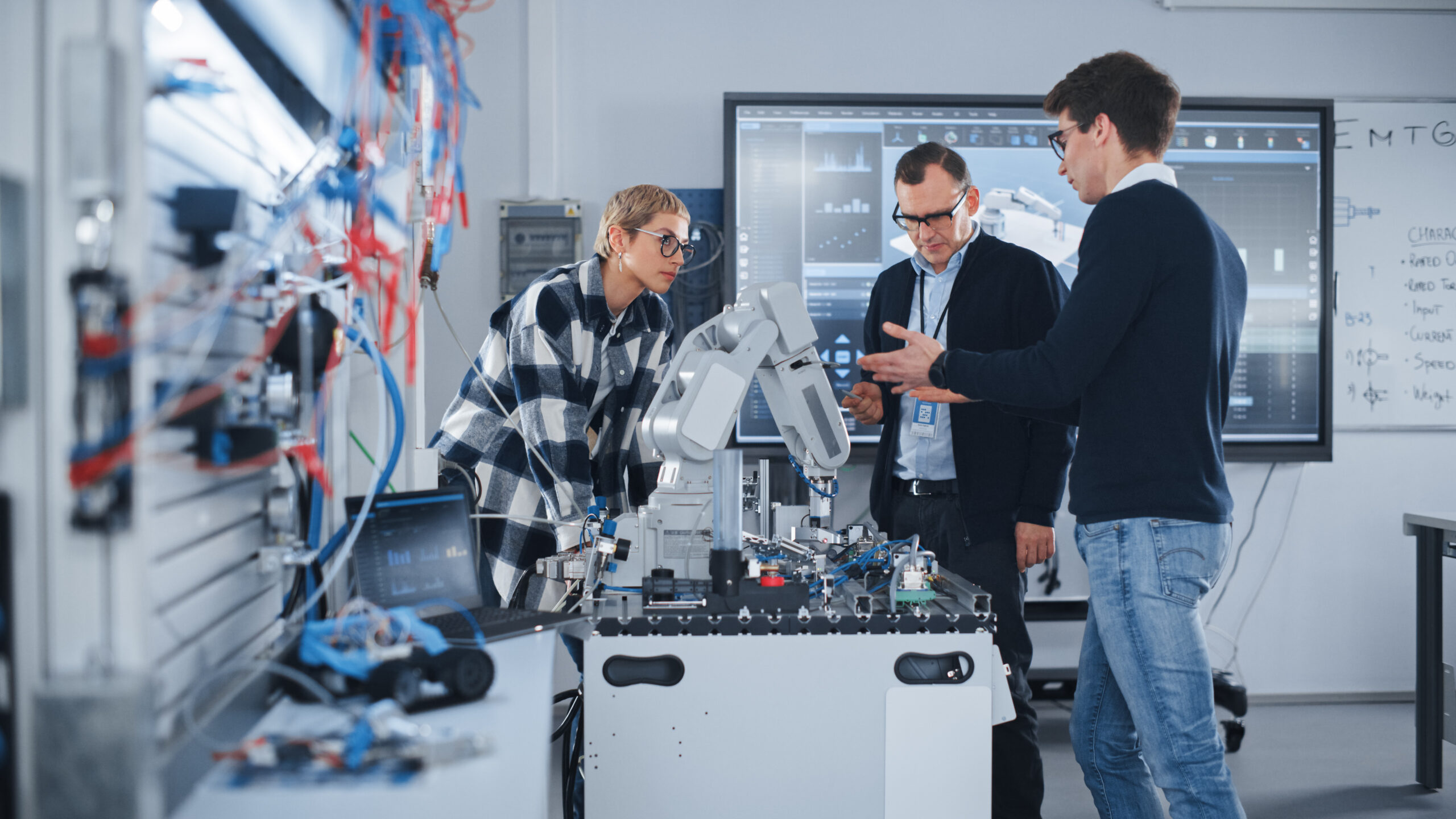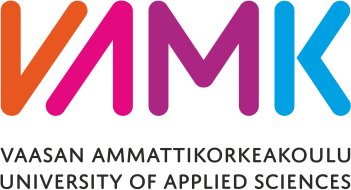
Kokkola workshop focused on robotics and digital manufacturing
Kokkola served as the center of innovation on April 4–5, 2024, as various parties gathered to discuss solutions for robotics, digital manufacturing, and sustainable development. The event focused particularly on key issues for the future of industry, such as the use of robotics, digital production methods, as well as corporate responsibility requirements and circular economy solutions.
Robotics and Digital Manufacturing Transforming Industry
The development of technology is advancing rapidly, and robotics and artificial intelligence offer new opportunities for industry. The event specifically discussed the development of cognitive robots, that is, robots capable of learning and adapting to human activities. This would allow, for example, programming robots with speech, gestures, or model performances, which could significantly accelerate and simplify production processes in industry. Additionally, the use of machine vision and artificial intelligence in industrial applications was highlighted. Robots could, for instance, be trained to identify welding joints and provide suggestions to operators, or use digital twins, which would allow production processes to be simulated before actual implementation.
As part of the event, discussions were also held on the development of digital learning environments. The goal is to create a platform where students and companies can jointly test and learn the latest technologies. This would strengthen expertise and support the availability of the workforce in the industry in the future.
The integration of robotics and digital manufacturing into industry not only enhances production processes but also improves product quality and reduces human errors. For example, with the help of digital twins, companies can simulate and optimize their production lines in real time, reducing downtime and increasing production flexibility. However, this technological transformation requires significant investments in both equipment and staff training to ensure that new systems can be effectively implemented. It is also important to note that while automation can replace certain job tasks, it simultaneously creates new job opportunities, particularly in roles related to technology management and maintenance. Therefore, continuous training and updating of skills are key to the success of industry in the digitalization era.
According to the European Commission, the significance of robotics lies in its broad impact on Europe’s ability to maintain and expand a competitive manufacturing industry, which is linked to millions of jobs. Robotics also offers new solutions to societal challenges such as aging, health, smart transportation, security, energy, and the environment (European Commission, n.d.). Research firm Gartner predicts that the current year will be the “year of hyperautomation,” meaning that the pace of automation will accelerate even further (Etteplan, n.d.). This development is partly due to the rapid decrease in the price of robots and swift technological development, making robotics increasingly accessible even for small and medium-sized enterprises.
The impact of digitalization on industry is widespread. New technologies such as artificial intelligence, machine learning, and the Internet of Things offer companies new opportunities to streamline production and improve their competitiveness. Industrial companies must be ready to take advantage of the opportunities offered by digitalization in order to stay competitive and respond to market changes (Lattu, 2022). However, it should be noted that digitalization has not increased productivity in manufacturing industries as much as predicted. For example, in the production of machines and equipment, labor productivity growth has been only 4% over the last decade, while in Finnish industry overall, it has been 22% (Mäkinen, 2021). This shows that simply adopting technology is not enough; process renewal and the development of staff skills are also needed.
Circular Economy and Responsibility Becoming Increasingly Important for Companies
Alongside robotics and digital manufacturing, the event also addressed the circular economy, reducing food waste, and sustainability reporting, which are becoming increasingly important factors in business operations. Particularly, smart packaging and labels that could help reduce food waste by indicating the actual shelf life of products sparked discussion. There was also contemplation on how to utilize by-products – that is, how surplus materials from the food industry could be used for purposes other than energy production, such as the development of new products.
Corporate and municipal climate responsibility was also highlighted, and climate partnerships were planned, with the cities of Vaasa and Kokkola already involved. The goal is to create models that allow cities and companies to enhance their climate work and reduce emissions in collaboration. The event discussed how SMEs can be supported in meeting the new requirements for sustainability reporting, as the EU and national regulations are increasingly tightening the operational requirements for businesses. The discussions raised the need for training and expert services to help companies understand and meet these requirements.
Circular economy and responsibility have become key elements in the business strategies of companies. According to Laatukeskus (2021), 99% of respondents consider sustainability an important part of a company’s high-quality operations, and 73% regard the circular economy as significant for their organization’s future. Circular economy models offer companies an opportunity to reduce their environmental impact and create new business opportunities (Excellence Finland, 2022). According to Ekokompassi (2023), the responsibility of procurement is a key issue in corporate responsibility, and the circular economy often starts from the shopping list. The long lifespan of products saves resources and brings economic benefits, as quality withstands even heavy use and may have resale value when no longer needed. Sustainability expert services, such as KIERIVA, provide support for companies in assessing the current state of circular economy and sustainability and in business development (KIERIVA, 2023).
Circular economy and responsibility are essential elements in the development of sustainable business practices. Companies that embrace these principles can gain a competitive advantage, reduce their environmental impact, and create new business opportunities. Responsible and resource-efficient operations provide companies with a competitive edge today and will be vital in the near future (Ammattilaisen Kädenjälki™, 2023).
Concrete Steps Forward
At the end of the event, participants agreed on the next steps to transform the developed ideas into concrete projects and collaboration models. Robotics and digital manufacturing projects will be launched so that companies and universities can jointly develop new technologies and advance industrial digitalization. At the same time, climate partnership initiatives are progressing in Kokkola and Vaasa, where cities and companies are committing to emission reductions and sustainability goals. Training for sustainability reporting will be developed to ensure that SMEs receive the necessary support in complying with new regulations and reporting requirements.
References
Ammattilaisen Kädenjälki™. (2023). Vastuulliset yritykset. Ammattilaisen Kädenjälki™. https://kadenjalki.fi/vastuulliset-yritykset/
Ekokompassi. (2023). Kiertotalous yrityksessä alkaa ostoslistalta. Ekokompassi. https://ekokompassi.fi/kiertotalous-alkaa-ostoslistalta/
Etteplan. (n.d.). Teollisuuden automaatio ja robotiikka kehittyvät nyt hurjaa vauhtia – osaajille kova kysyntä. Haettu 21. helmikuuta 2025 osoitteesta https://www.etteplan.com/fi/tietoa-meista/artikkelit/teollisuuden-automaatio-ja-robotiikka-kehittyvat-nyt-hurjaa-vauhtia-osaajille-kova-kysynta-0/
Excellence Finland. (2022). Kiertotalous ja vastuullisuus ovat kestävän liiketoiminnan ytimessä – Laatukeskus tarjoaa monipuolisia ratkaisuja yrityksille. Excellence Finland. https://www.excellencefinland.fi/kiertotalous-ja-vastuullisuus-ovat-kestavan-liiketoiminnan-ytimessa-laatukeskus-tarjoaa-monipuolisia-ratkaisuja-yrityksille/
European Commission. (n.d.). Robotiikka. Haettu 21. helmikuuta 2025 osoitteesta https://digital-strategy.ec.europa.eu/fi/policies/robotics
KIERIVA. (2023). Vastuullisuuden asiantuntijapalvelut, kiertotalous, kasvu ja koulutus. KIERIVA. https://www.kieriva.fi/palvelut/
Lattu, R. (2022). Digitalisaation vaikutus teollisuusyrityksissä. Haettu 21. helmikuuta 2025 osoitteesta https://lutpub.lut.fi/bitstream/10024/167581/1/Kandidaatintyo_Lattu_Rasmus.pdf
Mäkinen, M. (2021). Digitalisaatio valmistavan teollisuuden yrityksissä ja playbook sen toteuttamiseen. Haettu 21. helmikuuta 2025 osoitteesta https://www.theseus

